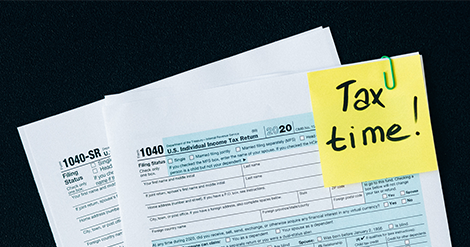Did you know that snow removal is taxable in Ohio but exempt in Illinois? Sliced bagels are taxed in New York whereas whole bagels are exempt. In Texas, charges to trim a tree is taxable unless the tree is under power lines...sales taxes are confusing.
What will really make your head spin is imagining the complexity involved for businesses (especially small businesses with limited resources) selling nationwide. 45 states collect statewide sales tax and these businesses have to stay on top of constantly changing rules and rates for all states. It's no surprise that most find bookkeeping and taxes the most unpleasant part of owning a business. However, the reality is that even businesses that have implemented ERP systems to handle their accounting and inventory needs and other back-end operations, frequently lack comprehensive sales tax functionality. Many resort to using antiquated methods of sales tax management such as manually entering and tracking tax codes on spreadsheets, or worse, paper and pencil. These businesses often find themselves in hot water when auditors come around as manual methods are prone to human error and disarray. Others turn to expensive third party bookkeeping services or hire full-time staff to manage sales tax alone. Or, they end up taxing just about everything to avoid falling short. If you fall into one of these buckets, there is a better way.
How does sales tax impact YOUR business?
Simply put, sales tax is a retail point-of-purchase payment enforced by state and local governments that are often charged by the seller of the goods/services and paid by the buyer of the particular goods/services. As a small business owner in the U.S., it is your responsibility to determine how much sales tax to charge customers, collecting that money and submitting to the appropriate government authorities within a given time frame.
There are several factors to consider when calculating sales taxes for your business. Where your customers are located, where you have a business presence such as storage of inventory, where your warehouses and shipping facilities are located and where employees are, all determine how many states you need to collect sales tax for. This is also applicable if you have sales people that sell inventory or services outside of the state your business is in. In this situation, the tax that reps would be responsible for is called Use Tax which is the payment made on purchases that are done outside the company’s state of residence.
Most busy businesses who don’t have the time to stay on top of changes and requirements resort to simply looking up tax codes and information using zip codes - this is often inaccurate and extremely risky as you may end up paying more than you need to or worse, not enough. Failing to pay the proper sales tax can be considered tax evasion and result in a fine and even jail time.
Help is out there!
While many ERP systems offer limited built-in sales tax functionality, it's best to go with an ERP solution that is able to integrate with robust sales tax software. Fortunately, there's been a great advancement in sales tax software over the years. Tax software companies such as Avalara, which integrates with Blue Link ERP, not only automates the process of calculating, reporting, remitting and filing sales and use tax but also minimizes human intervention and helps reduce the risk of over or underpayment. But just how much does this truly impact your business?
Think about the amount of time you spend on sales tax calculations and the stress associated with worrying if you've collected enough or over-collected. Automating these processes and having a system to guide you, means not having to manually keep track and memorize tax codes in spreadsheets. Better yet, think about what you could be doing with the time you currently spend on updating sales tax rules and calculations. Some businesses not only have to keep on top of general sales tax rates and rules but also any special tax rules that are relevant to their specific industry. For example, if you’re in the apparel industry, some states do not charge tax for clothing items while in others, you are required to pay. For the pharmaceutical industry, over the counter prescription drugs are taxed in Illinois and Georgia while they are exempt in many other states. Is your business impacted by industry specific sales tax?
Does your business sell online? eCommerce adoption has risen in recent years, and sales tax is like a dark, foggy cloud that hovers over businesses that join the eCommerce movement. Taxes are currently required by many states on online sales for both B2B and B2C businesses and these rules and regulations are constantly changing. For example, Amazon which previously did not require that sellers and purchasers pay sales tax, now require they do so as of April 1st of 2017. Some states, such as New York, even have a line on their income tax form where individuals are required to list all online purchases on which they did not pay state sales tax at all.
If that isn't enough, if you have a multi-channel business, you also have to consider and track the differences in paying sales tax for B2B transactions and B2C or D2C (Direct to Consumer) transactions. Many B2B transactions involving goods are tax-exempt, however as we see the climate of wholesale distribution businesses shift to selling D2C, these businesses will have to navigate through the tangled web of charging the correct amount in tax for each transaction it makes.
Let’s take a closer look at how Avalara addresses your sales tax needs.
(1) Passing Audits- Tax audits are becoming more frequent and stricter. Taxing jurisdictions typically conduct regular audits and require specific documents:
- Sales documents (credit card sales, purchase orders, customer correspondence, bills of landing, freight invoices, shipping instructions etc.) This is when integrating Avalara into an all-in-one accounting and inventory ERP system comes into play. Your ERP creates and saves information such as invoices and transaction records, that includes information on how much sales tax was automatically calculated by Avalara.
- Purchase documents- includes tax accrual records showing how tax was charged by the business and paid to the seller or by the company. Alongside Avalara’s automated sales tax calculation for each invoice/transaction, a true accounting and inventory ERP stores all purchase orders and sales invoices and includes information on the method of payment for every transaction.
- Exemption certificates- Sales tax exemption certificates enable a purchaser to make tax-free purchases that would normally be subject to sales tax. The purchaser must fill out this certificate and submit to seller. How do you currently save these certificates? Can they easily be found in the event that you are audited? The right sales tax software has functionality built-in to store and retrieve all exemption certificates quickly and easily.
(2) Eliminate Overcharges- Most businesses end up charging sales taxes on all transactions because they don’t want to risk not charging or paying enough. The best way to ensure you’re not remitting more sales tax (or not enough) than necessary is to automate calculations. Avalara charges the right amount of tax each time based on location, tax codes and updates calculations when any changes to tax amounts occur. Businesses can also leverage Avalara’s functionality for filings and returns.
(3) Additional Costs- Employees need to spend hours on hours identifying which transactions require sales tax. Many turn to expensive third party bookkeepers or hire full-time staff to manage sales tax. Integrating Avalara to your ERP solution is not only cost effective but more accurate than having someone manually keep track of changing rules.
Businesses also no longer have to bear the full burden of being 100% responsible for remitting sales tax. As an Avalara customer, if suffer a negative audit finding and financial loss related to an inaccurate result returned by the Avalara service, they will pay your uncollected tax, penalty, and interest, or refund your prior 12 months’ service fee, whichever is lower.*











